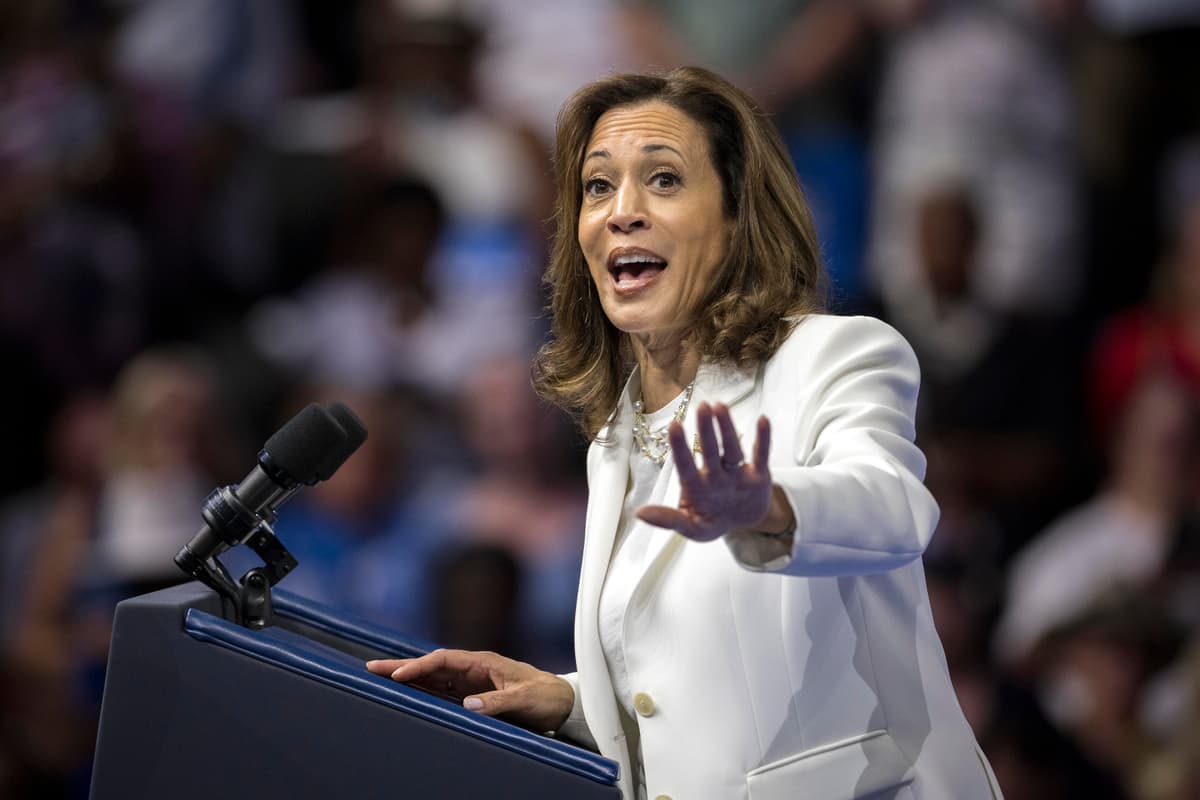Shape-Shifting Harris Raises the Prospect of a ‘Zelig’ Presidency
Zelig adopts the appearances of those around him, which is funny in fiction but can prove to be a problem in politics.

As Vice President Harris races to Election Day, she’s presenting different faces to the public in hopes they’ll find one appealing. The strategy may work, or voters may come to regard her as a political changeling without core beliefs — a flaw that has doomed both candidates and presidencies in the past.
“I want to be liked,” Woody Allen says as Leonard Zelig, subject of the 1983 film “Zelig.” Dubbed “the human chameleon,” Zelig adopts the appearances of those around him. It’s funny in fiction, but being branded a “flip-flopper,” as Secretary Kerry was in 2004, can prove fatal to ambition.
Although Ms. Harris lacks Zelig’s ability of metamorphosis, she has slipped into different accents on the campaign trail, giving fodder to social media which feasts on short clips and snark. A disciplined candidate knows that it’s pandering at best and insulting at worst to mimic your audience’s speech.
President Theodore Roosevelt was able to pull off a version of the Zelig trick. Of mixed ancestry, he’d ask constituents their background and exclaim, “Me too.” This earned the nickname “Old 57 Varieties,” a reference to the Heinz ketchup blend. On policy, however, TR was unshakable in a way Ms. Harris hasn’t been in her two months atop the ticket.
Throughout a career at the Democratic bastion of San Francisco, California, Ms. Harris had staked out positions on the left. This included her time as its attorney general, and the Hill reported last month that she was “the second-most liberal Democratic senator to serve in the Senate in the 21st Century.”
A candidate needs to “run to the center in the general election,” President Nixon said. It’s best to shift in a gradual manner and explain your changes of heart in interviews. Ms. Harris avoids speaking to the press, though, and has switched so much that, in this truncated campaign, the news cycle hasn’t had time to digest them all.
Ms. Harris favored banning fracking but now she promises not to. On guns, she supported proposals like a mandatory “buyback” and praised Australia’s near-total gun ban. Yet in the debate with President Trump, she announced that she owns a gun, although her campaign hasn’t responded to inquiries seeking details.
Earlier this month, Ms. Harris went full Zelig for Second Amendment supporters. “If somebody breaks into my house,” she told Oprah Winfrey while laughing, “they’re getting shot.” It sounded like a Hollywood caricature of someone with an itchy trigger finger.
The rhetorical crutch that Ms. Harris “grew up a middle-class kid” has also inspired eyerolls. Ms. Harris’s parents both earned Phds and had means, while her mother hailed from India’s Brahman caste, its highest. Although Ms. Harris says she worked at McDonald’s, neither she nor the company has offered proof, which plays into the theme.
Plus, too, Ms. Harris “has virtually erased Berkeley, California, her hometown, from her campaign biography,” the New York Times reported last month. Instead, she casts herself as a “daughter of Oakland,” which has far more street cred. Also erased is her adolescence growing up at the tony Westmount neighborhood of Montreal, Canada.
The danger of a leader who lacks a strong sense of self is reflected in the tale of President Pierce, one of America’s least successful commanders-in-chief. In a 1931 biography, “Franklin Pierce: Young Hickory of the Granite Hills,” Roy Nichols wrote that Pierce sought to please everyone else rather than leading as the nation careered toward the Civil War.
Like Zelig, Pierce “felt so much the need for human sympathy that he seemingly could not bear to make people hostile by refusal” and “took refuge in a cordial indefiniteness.” The result was that the president “surrendered any capacity for leadership” to his cabinet “and functioned merely as a member of an executive committee, not as a chief executive.”
In the Nuclear Age, Ms. Harris would face challenges as president even more dangerous than those in Pierce’s day. Should she govern the way she’s campaigned rather than stick to convictions, expect her to pay a political price — and to learn along with the nation that there are things far worse than not being liked.

